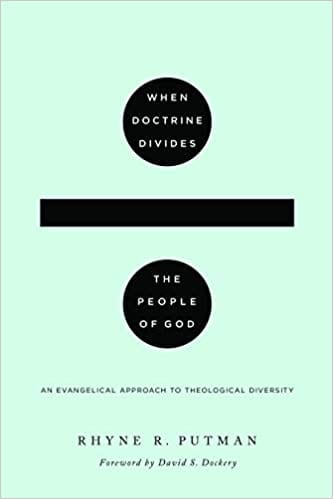BEN: Let’s talk about reason and faith a bit. I’m all for the careful use of our minds and reasoning to understand our Christian and to be able to give ‘a reason for the hope within us’. My problem is that a good deal of what the Bible tells us is inherently paradoxical, for example—how exactly did the divine pre-existent Son of God confine himself to the limitations of normal human nature such that he could even be tempted like us in every respect, save
without sin? I don’t think ordinary human logic can really explain some of these things. And it is possible to reason consistently within a circle but draw the circle too small. Indeed, I would say this is precisely what happens when you are dealing with someone advocating a purely naturalistic world view—- all things explicable by natural processes. They can make a plausible even logical case at times . . . but only by leaving out a considerable amount of evidence. What should be seen as the limits of reason and reasoning for the Christian? When does abductive reasoning about the supernatural cross the line from helpful creativity to distortion of the truth? My Granny used to say ‘don’t become so intellectual that you lose your faith’, or put another way, ‘don’t be so open minded that your brains fall out!’.
RHYNE: Though we could nuance these positions further, I follow Augustine and Anselm in categorizing three different approaches to the faith-reason relationship: “believing without understanding,” “understanding in order to believe,” and “faith seeking understanding.” The first option, fideism, says simply believe without reason, but this position opens us up to a host of potentially contradictory theological positions, or even worse, a kind of religious pluralism that says “I believe what I believe and you believe what you believe.” The second option, rationalism, pulls a Thomas and says “I won’t believe until I have I’ve seen the mark of the nails in his hands, put my finger into the mark of the nails, and put my hand into his side!” Your granny was right. There’s a lot of danger in this position. Rationalists, particularly of the atheistic variety, put an impossible standard on what it would take for them to believe: it should not be believed unless it can be communicated in “such a way that [it] should be convincing to any reasonable person.” No one can ever commit to anything, let alone God, with such a ridiculous standard for knowledge.
Most Christian theologians throughout history have held to one version or another of the third option: “faith seeking understanding.” Faith, as in trust in God, has priority over reason, but reason aids or supports such faith. Reason tells me the Christian faith does not and cannot contradict itself (though I acknowledge antinomy or apparent incompatibilities in places like you have mentioned). I side with Thomas Aquinas here in saying faith goes beyond what we can learn from reason alone but never contradicts it.
By employing abductive reasoning, all I am trying to do is illustrate the way we make guesses to fill in the gaps of understanding of Scripture. We make hypotheses or inferences to the best explanation to explain the data before us. As interpreters, we are like detectives trying to make sense of these documents written to audiences who are long gone, not knowing every detail or contextual clue that would help us understand them. Case in point: Paul chides the Corinthians for misuse of the gift of tongues in worship, but he does not bother to explain for other readers what the gift of tongues is. He doesn’t have to for his immediate audience, his intended readership. We who are culturally and chronologically removed are trying to put the clues together to understand the gift. Sometimes when approaching an exegetical issue like this, we select from a list of options. (I remember Tony Thiselton listing something like 14 different options for understanding the gift of tongues in his 1 Corinthians commentary.) The same is true for a litany of other Pauline themes we disagree about. We choose an interpretive paradigm that we think best explains the meaning of the text and work through exegesis to test it. Other times we find that the interpretive options that are open to us are unsatisfactory based on the exegetical evidence before us, and we are forced to create a new paradigm for understanding the text. Any time we do such a thing, we should proceed with caution because we don’t want to create a new interpretation just for the sake of saying something new or controversial. We want the truth, not neophilia.













